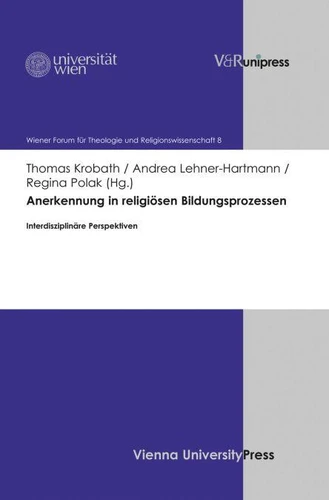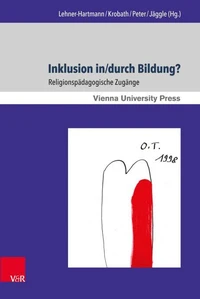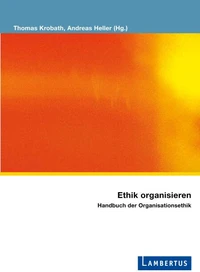Anerkennung in religiösen Bildungsprozessen. Interdisziplinäre Perspektiven
Par : , , , ,Formats :
Disponible dans votre compte client Decitre ou Furet du Nord dès validation de votre commande. Le format PDF est :
- Compatible avec une lecture sur My Vivlio (smartphone, tablette, ordinateur)
- Compatible avec une lecture sur liseuses Vivlio
- Pour les liseuses autres que Vivlio, vous devez utiliser le logiciel Adobe Digital Edition. Non compatible avec la lecture sur les liseuses Kindle, Remarkable et Sony
 , qui est-ce ?
, qui est-ce ?Notre partenaire de plateforme de lecture numérique où vous retrouverez l'ensemble de vos ebooks gratuitement
Pour en savoir plus sur nos ebooks, consultez notre aide en ligne ici
- Nombre de pages350
- FormatPDF
- ISBN978-3-8470-0202-4
- EAN9783847002024
- Date de parution20/11/2013
- Protection num.pas de protection
- Taille2 Mo
- Infos supplémentairespdf
- ÉditeurV&R Unipress
Résumé
In the academic, educational and political activities of the theologian and religious educator, Martin Jäggle, one of the chief concerns is to help build a »culture of recognition« . In his research, he seeks to give a voice to those who are not given a voice in matters of education and schooling, society, politics, religion and the church. By entering into dialogue with key texts of Martin Jäggle, scholars from different disciplines - particularly Catholic, Protestant and Islamic religious education, education, political science, social ethics, religious studies, philosophy and theology - develop perspectives that can open up the way to an interdisciplinary theory of the culture of recognition.
In the academic, educational and political activities of the theologian and religious educator, Martin Jäggle, one of the chief concerns is to help build a »culture of recognition« . In his research, he seeks to give a voice to those who are not given a voice in matters of education and schooling, society, politics, religion and the church. By entering into dialogue with key texts of Martin Jäggle, scholars from different disciplines - particularly Catholic, Protestant and Islamic religious education, education, political science, social ethics, religious studies, philosophy and theology - develop perspectives that can open up the way to an interdisciplinary theory of the culture of recognition.






